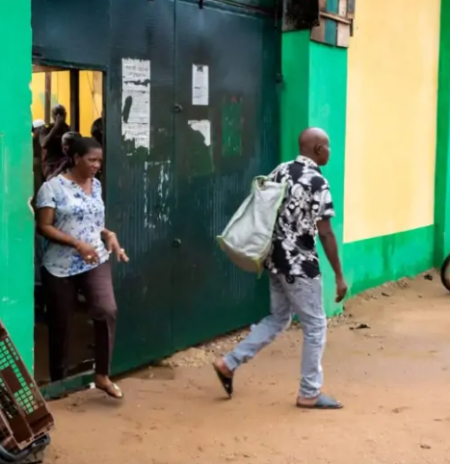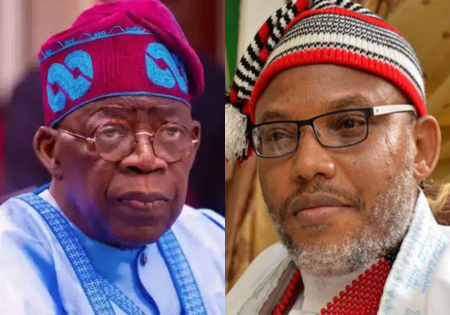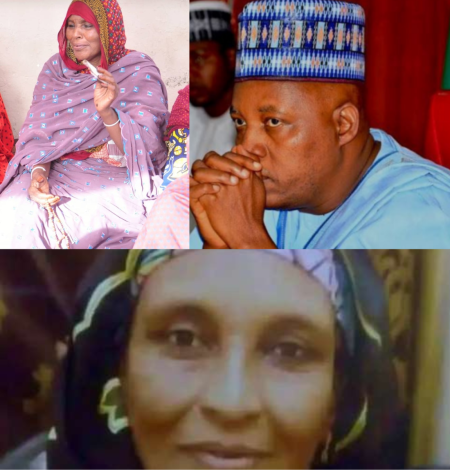The Federal Government’s naira redesign policy is overturned by the Supreme Court, which also orders that old notes remain in effect until December 31. A panel of seven justices from the Supreme Court has overturned the policy.
The court made the declaration on Friday, March 3, while delivering judgment in a suit filed by three states of the federation. The apex states that old N100, N500, and N200 notes are valid until December 31.
Although President Muhammadu Buhari possessed the authority to act as the executive of the federation, the Supreme Court ruled that he was still required to provide sufficient notice to the federating units prior to implementing the new monetary policy through the Central Bank of Nigeria (CBN).
The court stated that the states had not been given “reasonable notice” as required by section 20(3) of the CBN Act prior to the withdrawal of the previous naira notes.
Consequently, the Supreme Court ruled that Buhari’s authorization for the CBN to withdraw the old banknotes was illegal in its lead decision, which was written by Justice Emmanuel Agim.
On February 22, the Supreme Court moved the decision in the new naira policy case to March 3.
The Federal Government had been prevented from implementing the February 10 deadline for replacing the old naira notes by the court on February 8.
Following a lawsuit brought by the governments of Zamfara, Kogi, and Kaduna states against the implementation of the naira redesign policy, the injunction was issued.
Kanu Agabi, counsel for the Federal Government, stated in his arguments on February 22 that Section 20 of the Central Bank of Nigeria (CBN) Act was the foundation of all reliefs.
Agabi argued that the action could not begin with an Originating Summons, so the supreme court lacked the authority to hear the case.
In addition, he argued that the plaintiffs thought it was inappropriate for the apex bank to appear in court as a respondent despite the fact that their initial summons mentioned the CBN 32 times.
According to him, Nigerians had already rejected the previous notes in response to Buhari’s directive.
Agabi argued that the President had the constitutional authority to reject any law and that he had followed the court’s decision when he asked Nigerians to deposit their old naira notes at CBN-designated locations.
He asked for the lawsuit to be completely dismissed.
Additionally, counsel for the states of Edo and Bayelsa agreed that the suit should be dismissed for lack of jurisdiction.
Co-plaintiff Kano State Attorney General, on the other hand, claimed that Buhari only followed the CBN governor’s advice when putting the monetisation strategy into action.
He stated that the President decided to act without consulting the state governments, in contrast to what the law required.
After hearing the parties’ final arguments, a nine-member panel led by Justice John Okoro adjourned the case and set March 3 as the deadline.
According to the ICIR, on February 8, the Supreme Court halted the Federal Government’s plan to prohibit the use of old naira notes beginning on February 10.
While deciding on an exparte motion submitted by the governments of the states of Kaduna, Kogi, and Zamfara, a seven-member panel of the supreme court ordered the plan to be suspended.
Three states controlled by the All Progressives Congress (APC) had taken the Federal Government to the Supreme Court to stop the full implementation of the CBN’s naira redesign policy.
The suit was filed by Governors Nasr El Rufai of Kaduna State, Yahaya Bello of Kogi State, and Bello Matawalle of Zamfara State. They were concerned about how the CBN policy would affect people in their states.
Ekiti, Ondo, and Kano were among the states that applied to join the lawsuit.
The old N200, N500, and N1,000 banknotes were scheduled to expire on February 10, according to the CBN’s earlier schedule.
However, President Buhari declared the old N500 and N1000 notes illegal tender on February 10, despite approving the use of the N200 note until April 10 in a nationwide broadcast on Thursday, February 16.
Today’s proceedings at the Court were attended by Yahaya Bello, governor of Kogi State, and Nasir Elrufai, governor of Kaduna State.







